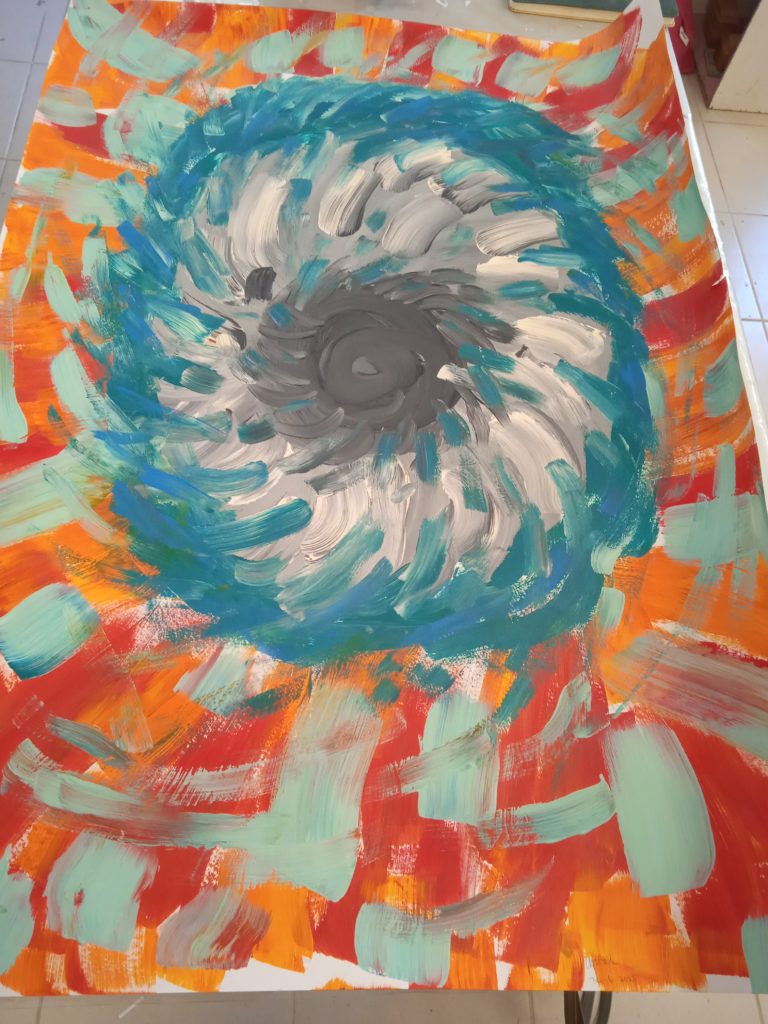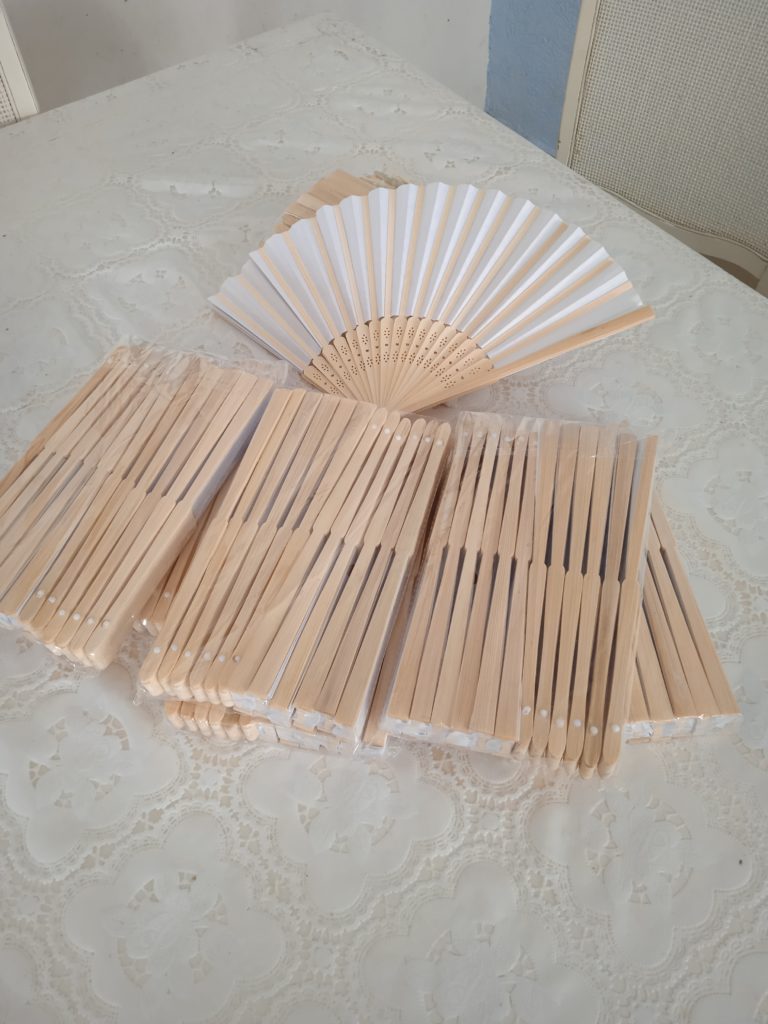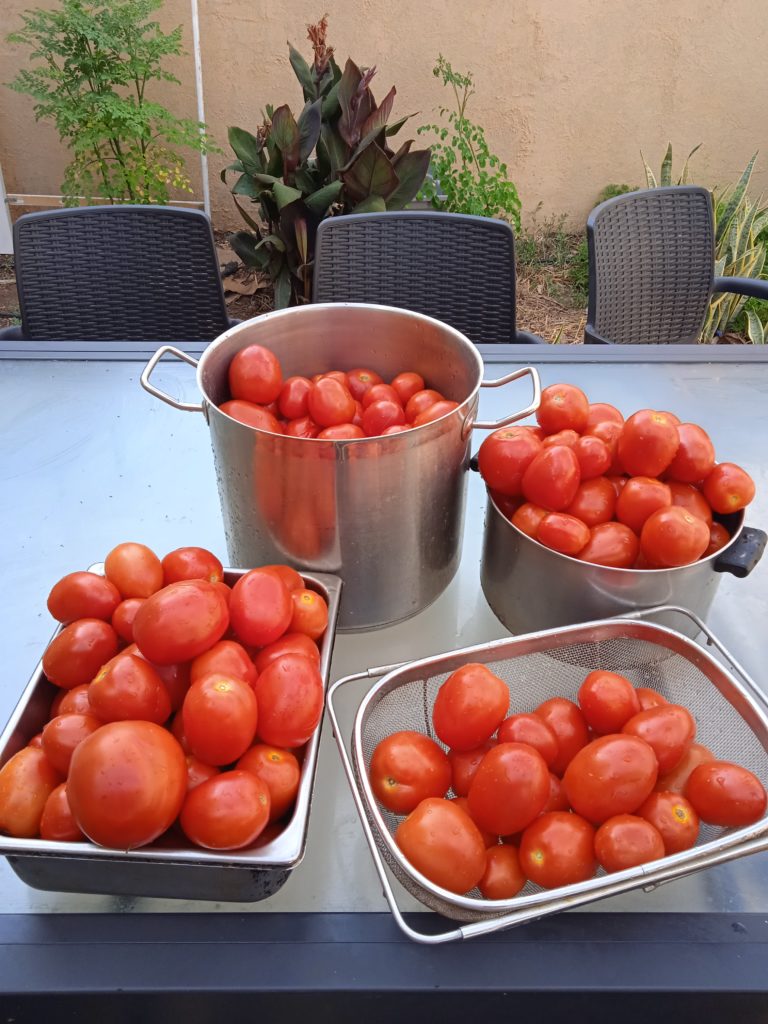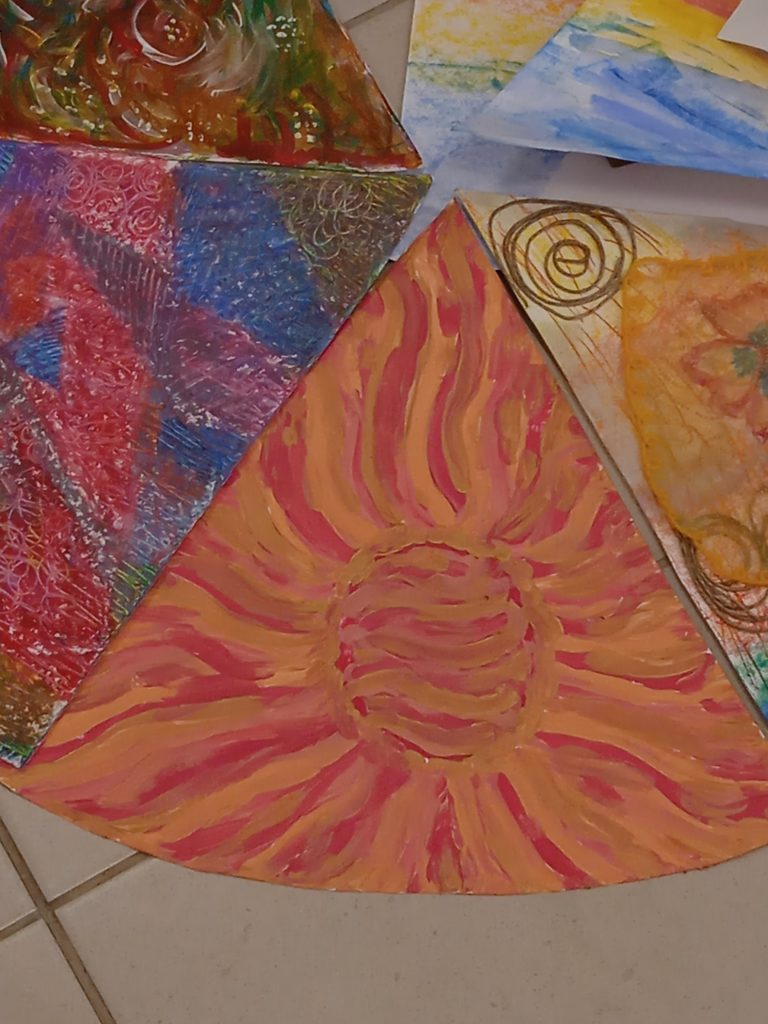Last night I was planning to do a vision board workshop with the teen girls that I give a Shabbos shiur to, but there was a scheduling conflict so I rescheduled it.
All my family members happened to be home at 5 pm and it occurred to me, why not do a family workshop right now!
Everyone was game, and quickly cleared the table and took out art materials. I put out the pile of collected magazines.
What is a vision board? A vision board is a tool to help a person clarify, visualize and connect emotionally to their desire for the coming year. For this reason I feel it’s especially appropriate to do before Rosh Hashana.
I started by explaining to my family the purpose. Then, each person was to cut out pictures or words that were emotionally resonant for them. They didn’t have to know why something resonated, but just to recognize that something about it felt good to them.
After collecting the images, they are pasted onto a paper to create a collage of good feeling images.
Since each picture is chosen for what it represents to the person himself, no one else can accurately interpret what was chosen without hearing the explanation. Often what it looks like and what is represents to the person are very different. For example, one son chose a picture of pizza with different toppings to represent balance.
Everyone enjoyed the creative experience, but then we had to stop to go in our different directions (shul, bar mitzva lesson, dinner). I went to a small Elul gathering in the fields that was so lovely. Several times I noticed my family members were trying to reach me, and when I finally called back at 10:45 pm, they told me they were waiting for me to come home so we could part 2 together.
I was so touched that they initiated this!
Part 2 is sharing the significance of what they created together with everyone else. This was so incredibly meaningful and powerful.
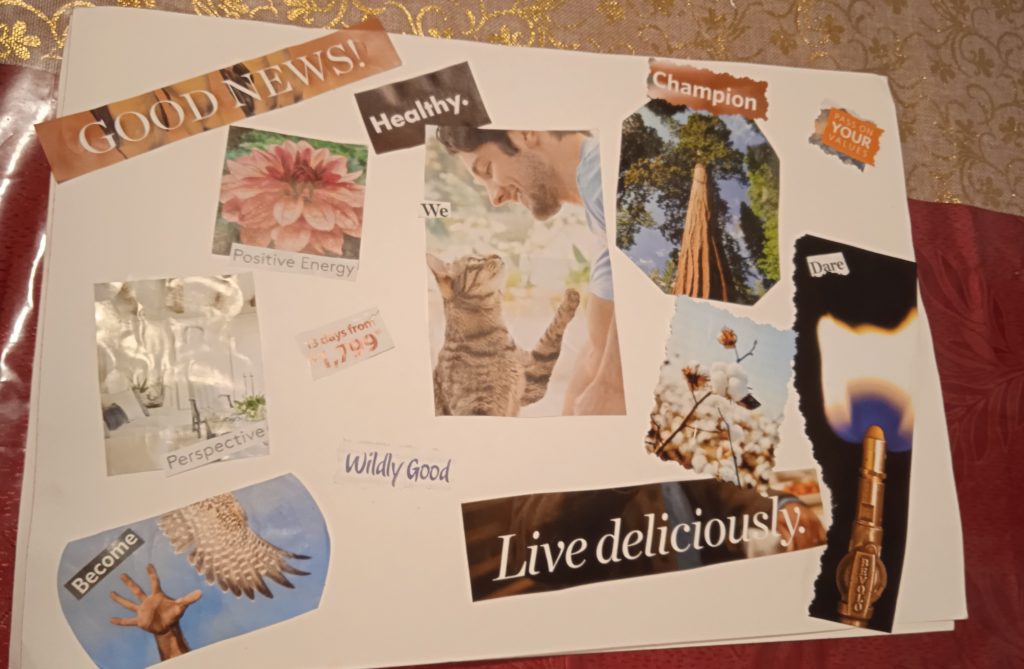
I wasn’t sure they would feel comfortable with this aspect, and stressed when I explained the process initially that no one had to share if they didn’t want to. It takes courage to set an intention and it can feel vulnerable to envision something with no idea of how or when it can happen. And it can feel even more unsafe to share about those intentions with others.
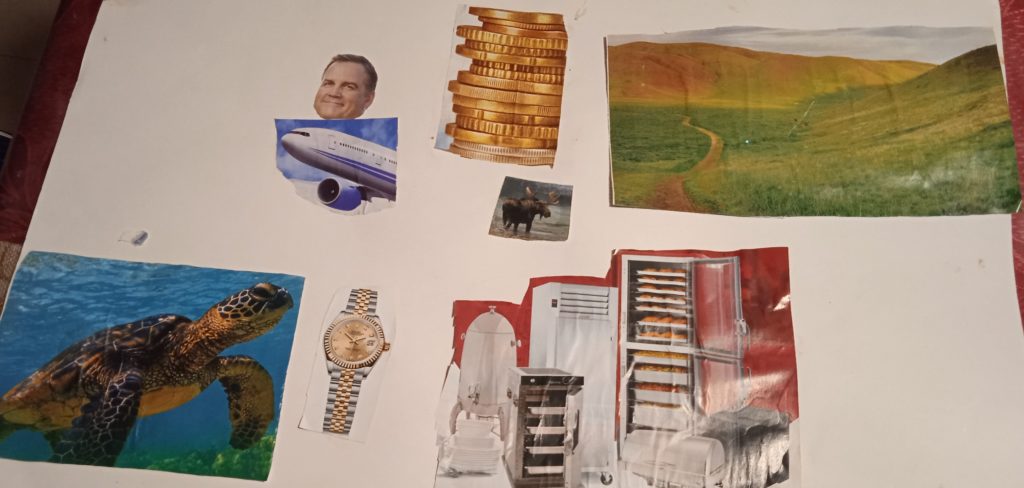
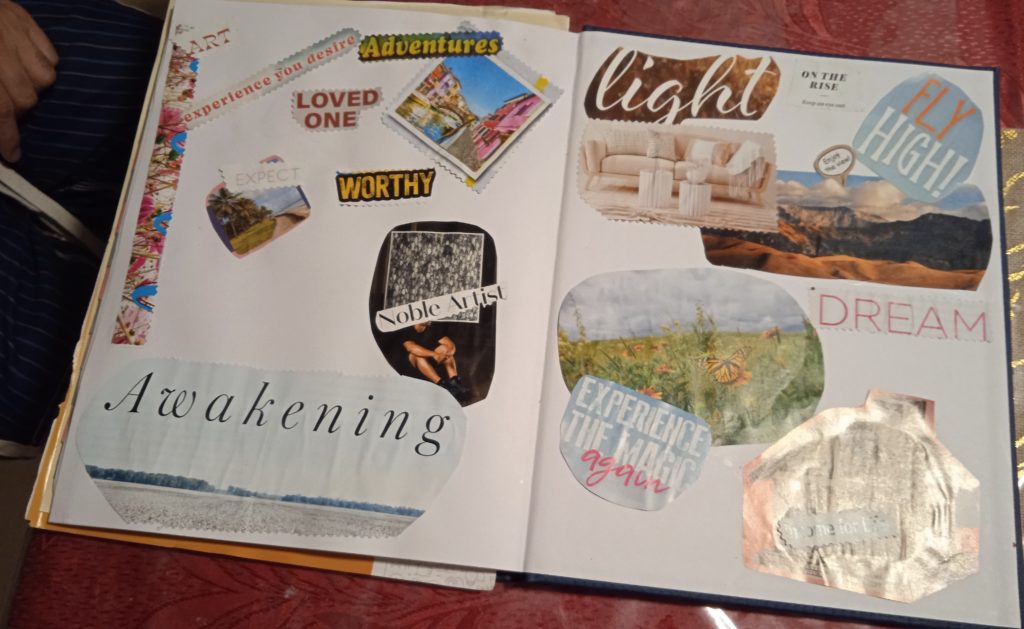
As nice as the creative process was, sharing about it exponentially deepened the experience. It helped each person further clarify for themselves and for the rest of us what they wanted and their feelings about it.
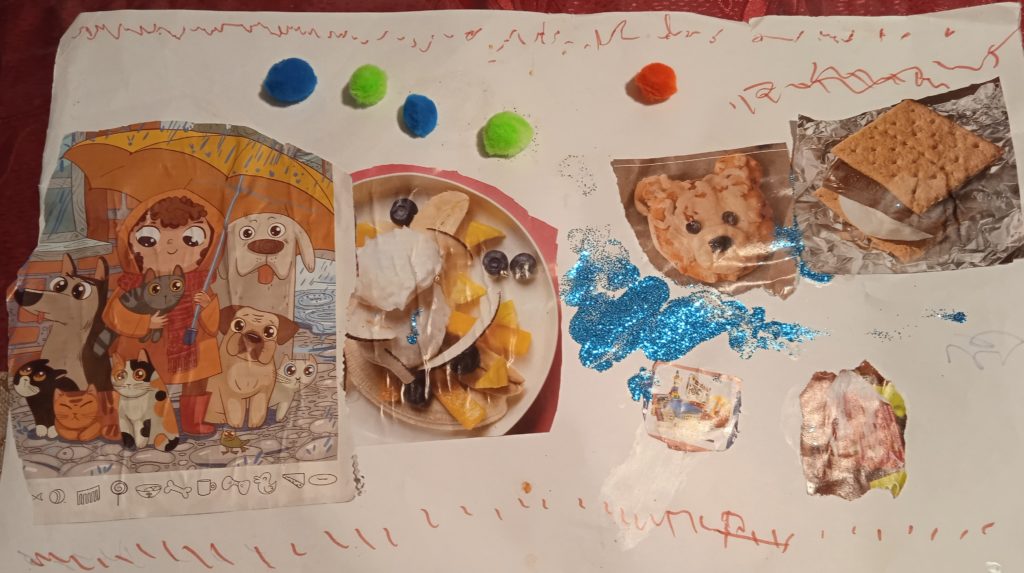
I was literally in awe of what each person created, to hear the explanation of what each picture and saying chosen meant to him. Even knowing my children as well as I do, I wouldn’t have guessed what many of the pictures represented. So much depth and to hear about what was chosen, what was cut out so it didn’t appear in the vision board…wow.
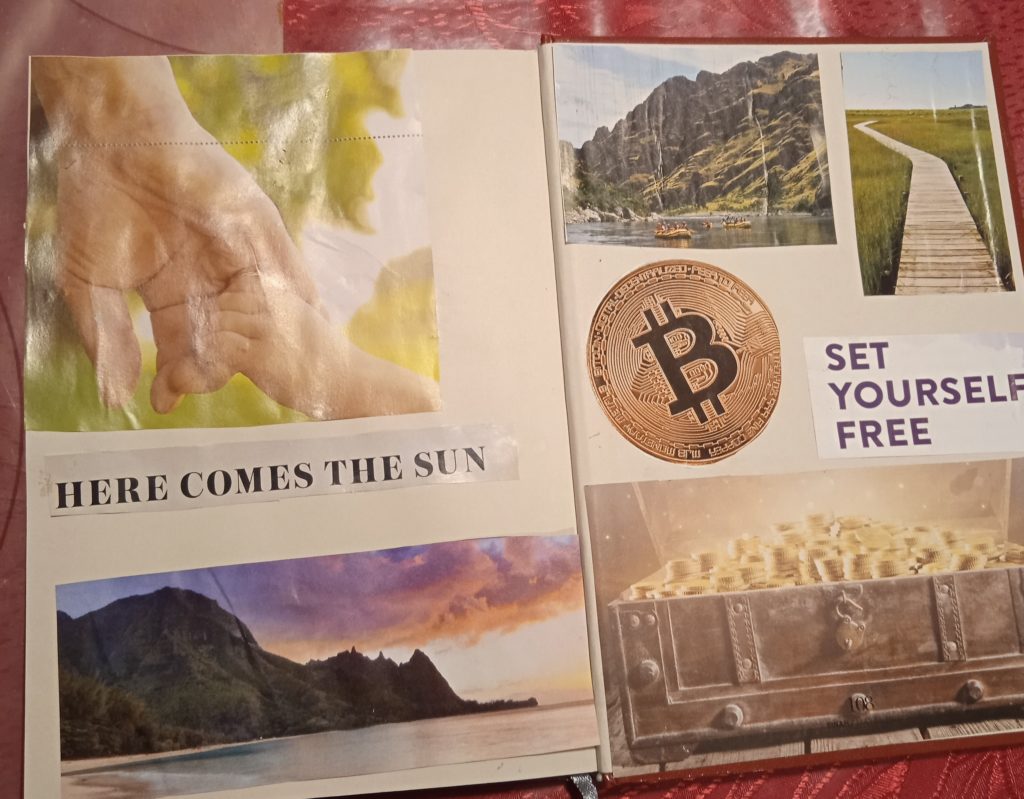
A few of us want to continue adding to the vision boards today. One came home from davening and by 7:45 am was already looking through the magazines for more images to add. Everyone in our family who was home made a vision board (two aren’t shown), except for ds4 (though he was actively present, including through session 2, which took place from around 11 pm until midnight).
It was a great experience and one that I am so grateful we were able to do together!
Avivah

